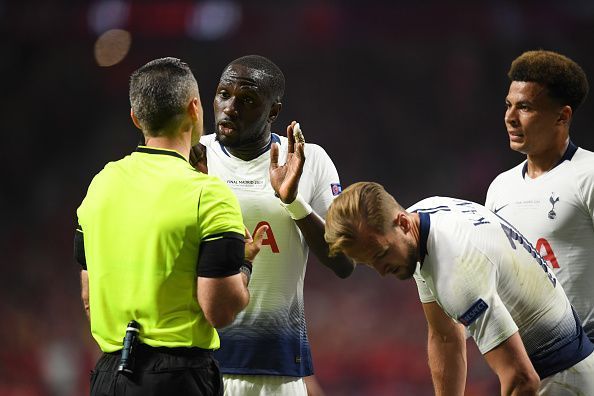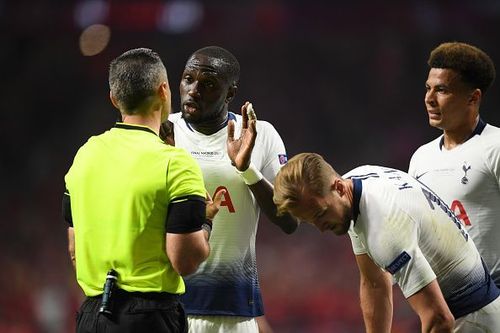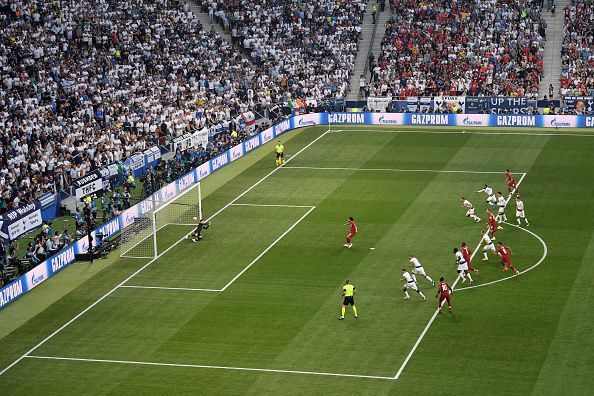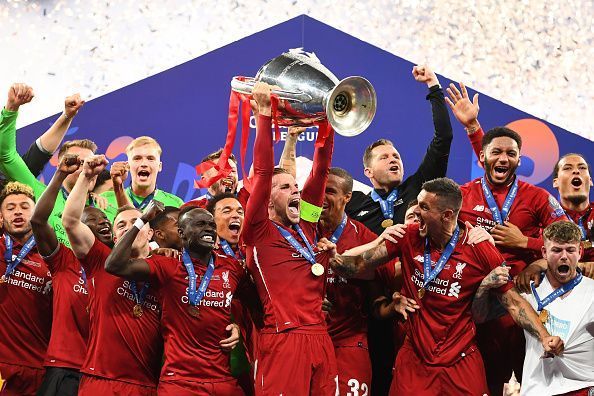
In the Champions League Final, Liverpool and Tottenham lived the chaos of football

Liverpool were better. Maybe. Or Not.
How does a team react to a bobble 30 seconds in, a maybe penalty -- arms moving down, point of contact unsure, the VAR just machine eyes with a fallible human brain -- and a goal down in the biggest game of their lives.
It was all of last season's Champions League final nightmares combined to produce one fortuitous moment, enough to ensure that Tottenham Hotspur would not be able to take advantage of memories repressed, but not forgotten for Liverpool.
Did Moussa Sissoko spend the rest of his 74 minutes on the pitch wondering if he could have suppressed the human urge to use our hands as an extension of our minds?
Mohamed Salah, scorer of the penalty and the man who wasn't allowed to put the finishing touch to his season last year, would say it's only fair. That's because, and as football has proved over and over again, there's more to this game than being good.
In 'The Numbers Game: Why Everything You Know About Soccer Is Wrong', authors Chris Anderson and David Sally argue that -- reduced to the very basic points -- that chance is just as important in football as skill and training. Yes, split right down the middle, 50-50.
Anderson, once a goalkeeper and now an analytics pioneer, and Sally, a former baseball pitcher and a business school professor, it seems, are arguing that with the margins so tight, a deflection here, a step there or an unfortunate moment in the penalty box play as much a role as all the training and planning that make million-dollar (or pound or euro) squads.
But that's a book reduced to ridiculous assumptions that even the worst teams could beat Liverpool about 50 times if they face each other in a 100 games. It's more apt for when teams of similar calibre play each other, which was true last night. Spurs were equal to Liverpool. The bobble notwithstanding.
Even so, a game like this can force you to believe in this.
Liverpool had in the semi-final proven that they are above the statistical mean, overcoming a three-goal deficit with one of the cheekiest moves in football, equal to Johan Cruyff's two-man penalty.
The numbers also explain why Liverpool finished 26 points ahead of Spurs in the Premier League. Knockout tournaments are more influenced by luck.
It was in a bid to undo this interference of fate that both managers, including the mighty Jürgen Klopp with his heavy-metal football, decided to play it safe. The fans were unhappy, the ones that did not have a trophy on the line in any case.
Liverpool were careful in their advances, and played a slicker version of long-ball football in the first half. They did not worry about holding the ball, but worked it forward. Sensible football. The fast feet of Salah and Sadio Mane made it pretty.

Per Whoscored.com, Spurs had 16 shots to Liverpool's 14. The possession was skewed in Spurs' favour, 64.6% to 35.4%. And that also means Spurs had a superior pass rate of 80% to 60%. These numbers only show how close the teams were in quality on the night, and how the penalty weighed in on the match.
Purists can always argue that Mane was clever, that the rules are equal for both teams. That Son Heung-Min had his chances, and Harry Kane was absent on the field. They'd point to everything Liverpool did right and everything Spurs did wrong.
They'd point to the second goal. A deliberate finish if ever there was, Divock Origi smashing it across Hugo Lloris into the bottom right corner. But the argument for chaos is even clearer. A missed shot by Virgil van Dijk, a failed clearance and a player in position to take advantage of chance.
But the balance was even at the end of it all. Except for one bobble.

Chance is fair. And though chance probably did not have a result in mind, as the game commentator signed off, "It made up for last season's failure. It made up for losing the Premier League to Manchester City."